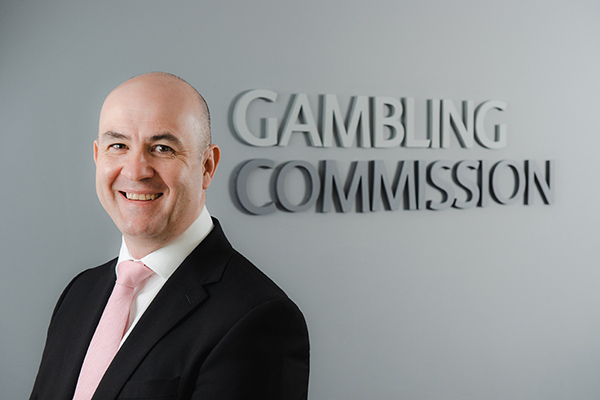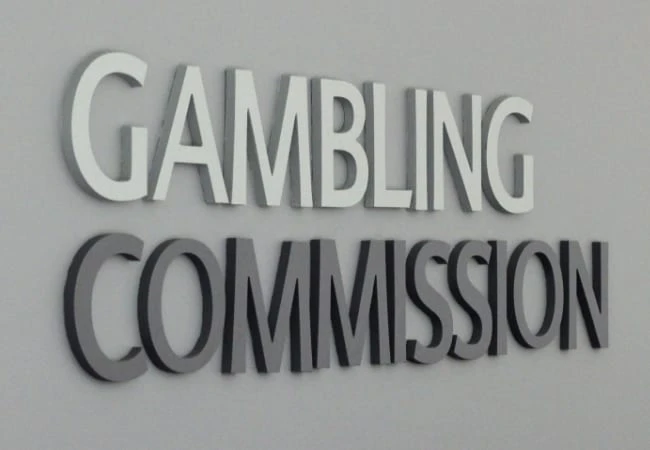Fifty-year UK industry veteran, David Brown, evaluates the tightrope being walked by the Gambling Commission on affordability checks.
During the “largest ever gathering of industry leaders” on 10 November, Andrew Rhodes, the Gambling Commission’s (GC) chief executive, attempted to walk the tightrope on affordability checks.
The story of affordability checks has created the most united front between punter, racing media and bookmaker that the UK has seen.
To his credit, we can certainly say that Rhodes has arguably done more to bring the industry together than anyone ever before.
However, that united front is now against him and the Gambling Commission, especially following his speech on 8 November.
The challenge that the GC now faces is the need to balance player protection while keeping the industry sustainable.
The speech: what went wrong

The GC has a precarious tightrope to walk. However, for many in the industry, the feeling is that the GC does not have its interests at heart.
“[The speech] reads to me rather like a party-political manifesto,” says David Brown, a UK industry veteran since 1976, and former executive trading director for William Hill, Coral and Ladbrokes-Coral.
“High on aspiration and intention but without the detail of how everything will be delivered.”
It has been previously claimed by the GC that only 3% of accounts will be subject to affordability checks.
“The GC’s own measure of how many betting accounts would be subject to affordability checks has been roundly criticised as inaccurate by many commentators,”Brown says.
“Rhodes now introduces another measure, ‘gambling at the time’, to support his own data but without definition of what that exactly means.”
Affordability checks: misrepresented statistics
The issue is that many of the accounts included in this 3% belong to “occasional” punters. These include those who only bet on major events, such as the Grand National, and thus are unlikely to place another bet for 12 months. Or if they do, it will be for only a few major races that are broadcast on national television, such as the Cheltenham Festival.
So, how many regular punters will be subject to regular affordability checks? Nobody seems to know.

“Instead of criticising data produced by different sources, and in the spirit of renewed collaboration, then surely the solution is to agree and define industry standard definitions for terms such as ‘active’ gambler and ‘dormant’ account,” Brown says.
“If all stakeholders used the same definitions, then we would see more clarity on the data supporting key debating points.
“This would avoid wasting time trying to rationalise data sources and debating the data purity itself in favour of using mutually accepted data to make the required decisions and lead to positive actions.”
Many in the industry believe that the affordability checks could cause customers to stop using regulated bookmakers.
If that were to happen, then the statutory bookmaker levy that funds UK racing will take a serious hit.
The GC: taking responsibility for horse racing
In Brown’s view, the GC cannot distance itself from how its decisions will affect the UK’s sixth largest employer.
Rhodes, however, disagrees. “It is not the job of the Commission to consider or advise on the wider implications for any given sport – that is the role of DCMS,” he told a congregation of industry leaders on 8 November.
In contrast, Brown believes differently. “If I follow his argument correctly to its conclusion, I believe his comments are saying that if racing were to ultimately cease to exist or at least be significantly reduced in size because its funding model collapses, then that’s not a matter for him.
“I doubt many would agree with that position. I certainly don’t.
“Surely, a balanced approach [is] protecting the vulnerable from harm while allowing those who wish to bet on racing within their means [to] continue to do so. Most importantly, doing so with minimum inconvenience would be the best way forward.”
Of course, hindsight has 20/20 vision. The challenge now is to move forward together in this balancing act.
According to Brown, the main issue is the lack of a clear project plan when the white paper was first set in motion.
“Whenever a process like this is undertaken then a clear project plan should be in place for delivery with agreed timelines and named individuals accountable for delivery to scope and time,” he says.
“The continued time slippage on delivery led to scepticism of the review, which was unhelpful.”

This is understandable. Six ministers were involved in the review, as well as the original deadline being missed by a year.
“Industry leaders, please step forward”
So how do we move on from here? Let’s look at the positives. We have made significant progress in the past year to reduce severe gambling harm, as Rhodes emphasised.
Brown agrees. “I was especially pleased to read of the reduction in ‘extreme’ cases, which have been distressing to see with some dreadful human impacts involved,” he says.
“Maybe the eye-watering fines applied to betting operators have been the catalyst to force change within organisations to protect their customers from harm. If so, then that has to be accepted all round as excellent progress.”
This is a strong example of how everyone in the industry can work together to achieve common goals. Hopefully we can do the same with affordability checks.
So, what follows? “The first step is to agree on what we can agree on and then focus forensically on where differences occur or where obstacles lie,” Brown says.
“I have been involved in this industry for over five decades and it is resilient. It has emerged from challenging times before and I have little doubt it will do so again. Leaders, please step forward.”
So, what is something actionable? In Brown’s view, that depends on where you look.
“This present scenario of potentially highly intrusive affordability checks is likely to encourage illegal operators within Britain. There is no room for complacency here.
“A wise position would be to be alive to the threat of illegal activity and work collaboratively as an industry to identify it and prosecute under the law.
“Stopping illegal traffic through geo-blocking and advertising into the country is a good place to start.
“However, that will not halt British bettors engaging with betting operators outside the GC’s jurisdiction. This also does nothing to identify any black market non-digital betting within Britain.”
Highlighting the positives
So, how do we navigate the changing landscape together – and more importantly, is this possible?
In Brown’s view, which draws on decades of experience at the helm of some of the UK’s leading bookmakers, it is.
“In my experience, bookmakers themselves have for many years, and long before the Commission came along, always proactively identified illegal cash betting operations and have provided information leading to prosecutions.”
But, as Brown emphasises, the key stakeholders in the industry need to show leadership and find new ways of thinking together.
“A good starting point would be to review how in the early years of the GC, the relationships between the commission and bookmakers were very collaborative.
“There was excellent work done to identify and prosecute ‘cheats’ under the powers of the new Act when the GC first launched. This involved the GC, betting operators and the Sports Integrity Units working collaboratively together.
“Tennis in particular was excellent – we even had a direct hotline to the Tennis Integrity Unit, as well as the Commission, for highlighting suspicious activity.”
Brown believes that identifying and understanding the problems that occurred can help improve the relationship between the parties involved.
“There is a perception within many betting operators, especially racecourse bookmakers, that the GC doesn’t quite ‘get’ betting or understand how bettors think and behave.
“So, it’s a little surprising that of the seven newly appointed commissioners with backgrounds in many sectors none of them has experience of the betting industry.”
Concluding thoughts
Andrew Black, a co-founder of Betfair, agrees that we must find a new commonality of thinking, as stated in a recent article.
“I make Andrew Black 100% correct in his judgment. Surely, to rally the industry together we do need some new thinking and ideas,” Brown says, before reiterating his plea for industry figures to stand up and be counted.
“I’ve said many times that the industry stakeholders need to show true leadership, accept mistakes that have been made in relationships and learn from them.”
Rhodes’ call to arms for the industry to rally and navigate the changing landscape certainly rings true. And by paying heed to Brown’s views articulated here, hopefully we can all see the importance of working together to solve the problems we face. Do that and the industry can look forward to a brighter 2024.





